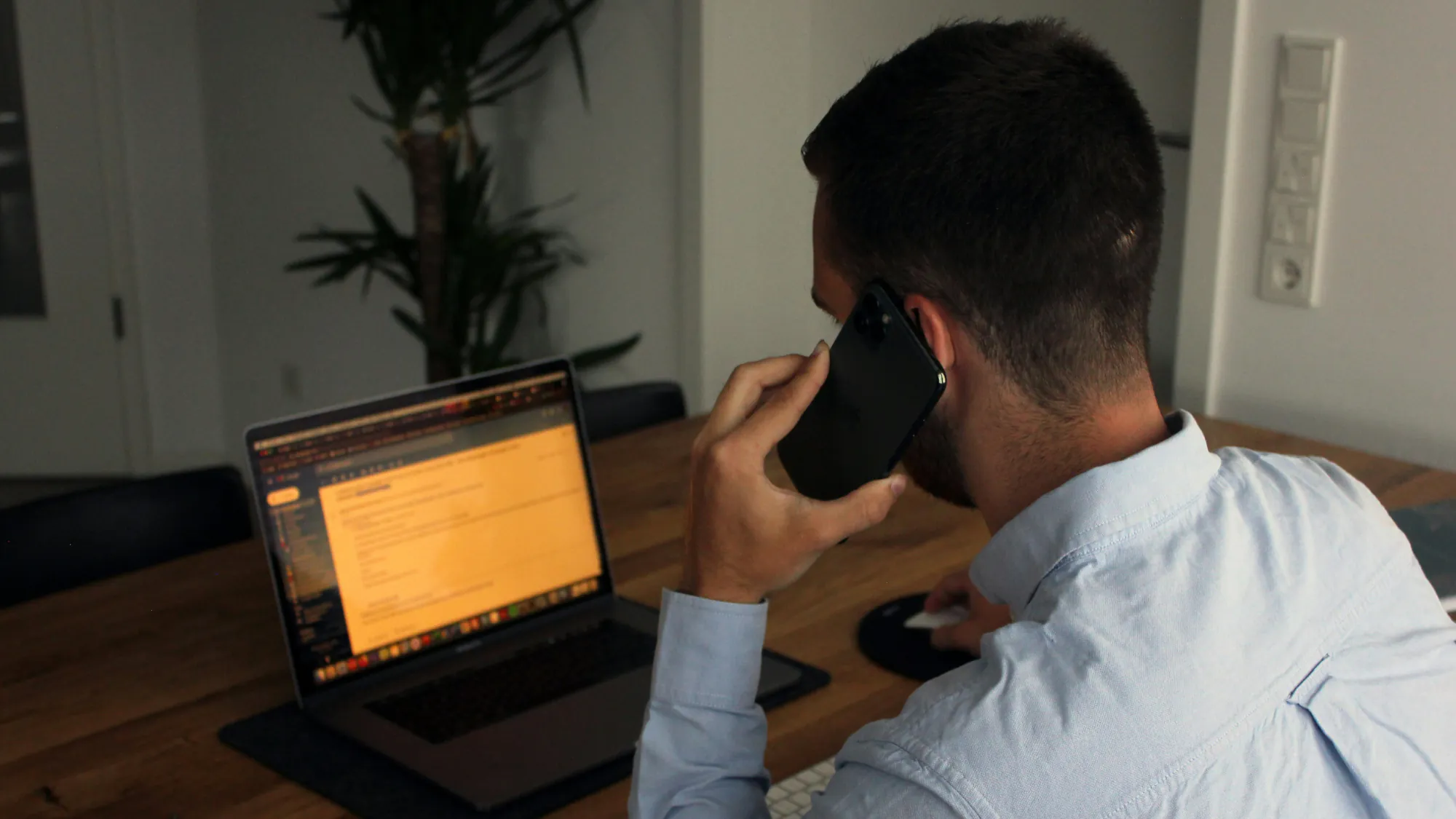The Friday Five series provides a weekly insight into innovative early-stage spinouts and university-affiliated startups that are making a significant impact in their fields.
This week, we explore novel AI bots designed to waste scammers’ time, a groundbreaking method for large-scale ocean floor mapping, advanced technology for recovering critical components from spent batteries, a cost-effective approach to extracting green hydrogen from seawater, and a platform that provides tech transfer offices with valuable insights into commercial opportunities.
Do you want us to talk about your spinout in the Friday Five series? Email us!
Apate flips the script on phone fraud
Your bank account’s been hacked, and you need to transfer the money to a “safe” account immediately – it’s a message most of us have heard on the phone at least once. It’s a scam, of course, but in Australia alone, people lost A$25.8 million to this type of fraud in the first four months of the year.
Apate.ai, a spinout from Macquarie University, tricks fraudsters into calling an AI bot rather than a real person, not only wasting the scammers’ time but also gathering intelligence on them.
The spinout operates a growing network of dedicated phone numbers, designed specifically to be discovered by scammers. Once they call or text a number, Apate has engineered AI bots to engage the scammers, gather data on them, and disrupt their operations.
A few days ago, Apate signed its first commercial deal with a financial services provider, CommBank. Data collected by the AI bots is fed, in near-real-time, to CommBank’s scam control systems.
The spinout’s agreement with CommBank follows a pilot launched by the two partners in August last year.
Apate’s telecoms partner is TPG Telecom. The spinout says its technology is being used to prevent as many as 10,000 scam calls a day from reaching real people.
Cosma maps the ocean floor
Spun out of the Institut Français de Recherche pour l’Exploitation de la Mer (IFREMER), Cosma is using autonomous underwater robots to map marine habitats on the seabed at a depth of up to 200 metres.
The technology can capture anywhere from a few hectares to several square kilometres, building a digital twin of the ocean floor through photogrammetric reconstruction.
Applications for Cosma’s technology range from monitoring biodiversity to generating environmental impact assessments for coastal civil engineering projects. Clients include energy company RWE, the World Wildlife Fund, and the Marine Nationale, the naval arm of the French military.
On Monday, Cosma raised 2.5€ million in a round co-led by VC firms Wind and Ternel, with contributions from IFREMER, 50 Partners, and Caisse d’Épargne Côte d’Azur. The spinout has also secured grant funding alongside the equity investment.
The money is going towards growing Cosma’s fleet, further developing its software, and structuring its operations to work with public and private clients at a European level.
Licovolt makes EV batteries more sustainable
Licovolt, spun out of the University College Dublin last year, is commercialising a chemical compound and process to extract lithium, cobalt, nickel, and manganese from spent batteries. Its technology is cheaper and produces fewer CO2 emissions than other approaches, the company says.
And now, Licovolt has raised an undisclosed amount of seed funding from Davencor Holdings (the family office of John Corcoran, who founded low-voltage switchgear manufacturer Davenham Switchgear).
Licovolt is specifically targeting the electric vehicle and data centre markets, licensing its technology to industry partners and original equipment manufacturers.
An estimated two million uninterruptible power system batteries, used in data centres, are expected to need recycling within the next five years.
Among Licovolt’s existing collaboration deals is also a joint development agreement with Pure Battery Technologies, signed in January this year. Pure Battery Technologies refines raw materials such as mixed hydroxide precipitate and recycled battery black mass into high-grade precursor cathode active material required for lithium-ion batteries.
pHydrogen turns seawater into sustainable hydrogen
The University of Tokyo spun out pHydrogen in January this year to commercialise technology that uses renewable energy and base metals (a near-neutral electrolyte and iron-based electrodes) to convert seawater into hydrogen.
The fact that pHydrogen’s approach doesn’t require precious metal catalysts, or freshwater, means it provides a more cost-effective solution – both upfront and during operation – than comparable methods.
The approach convinced Incubate Fund to inject ¥300 million in seed financing, which pHydrogen will use to scale up its seawater electrolysis system and build strategic partnerships.
The spinout’s technology was developed in the lab of Prof Kazuhiro Takanabe.
ScoutinScience wants to double global tech transfer activity by 2050
ScoutinScience raised nearly 1€ million in funding this week from 819 Capital and multiple angel investors. The company has built an AI software that analyses scientific papers with the aim of identifying research with a high potential for commercialisation.
The startup first tested its technology with a Dutch university in 2020 and also works with government agencies and investors.
The software can filter by TRL level, sustainable development goals, and pinpoint where patents originate (including identifying contributions from specific research groups, domains or regions). For TTOs, the tool can filter by department or monitor disclosures from the entire faculty.
ScoutinScience has clients in Germany, Ireland, Austria and the Netherlands (the company’s headquartered in Enschede). It will use the money raised to expand into more European markets and to further enhance its offering.
Do you want us to talk about your spinout in the Friday Five series? Email us!
This list is for informational purposes only. It does not constitute investment advice.



